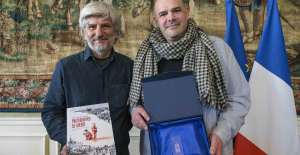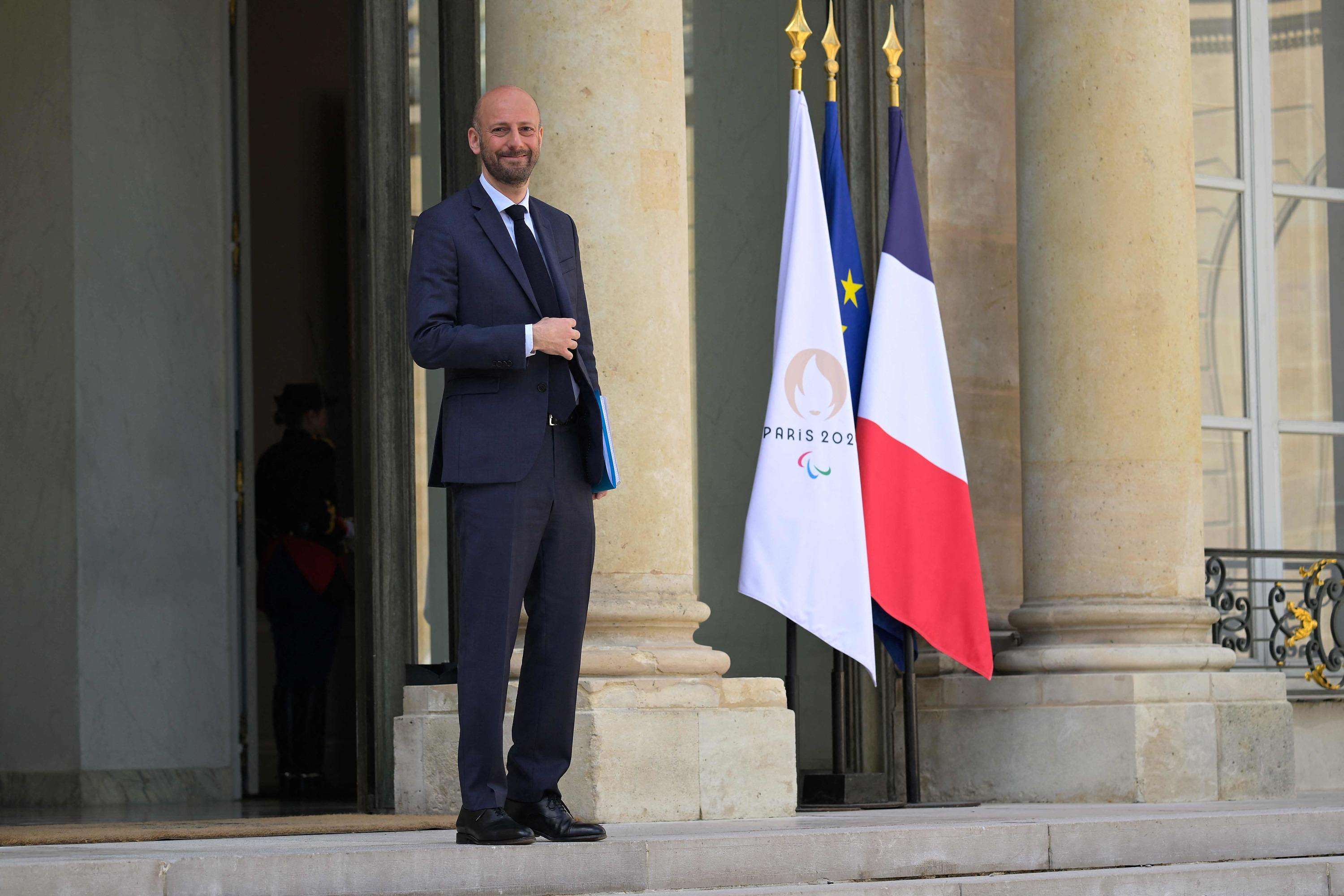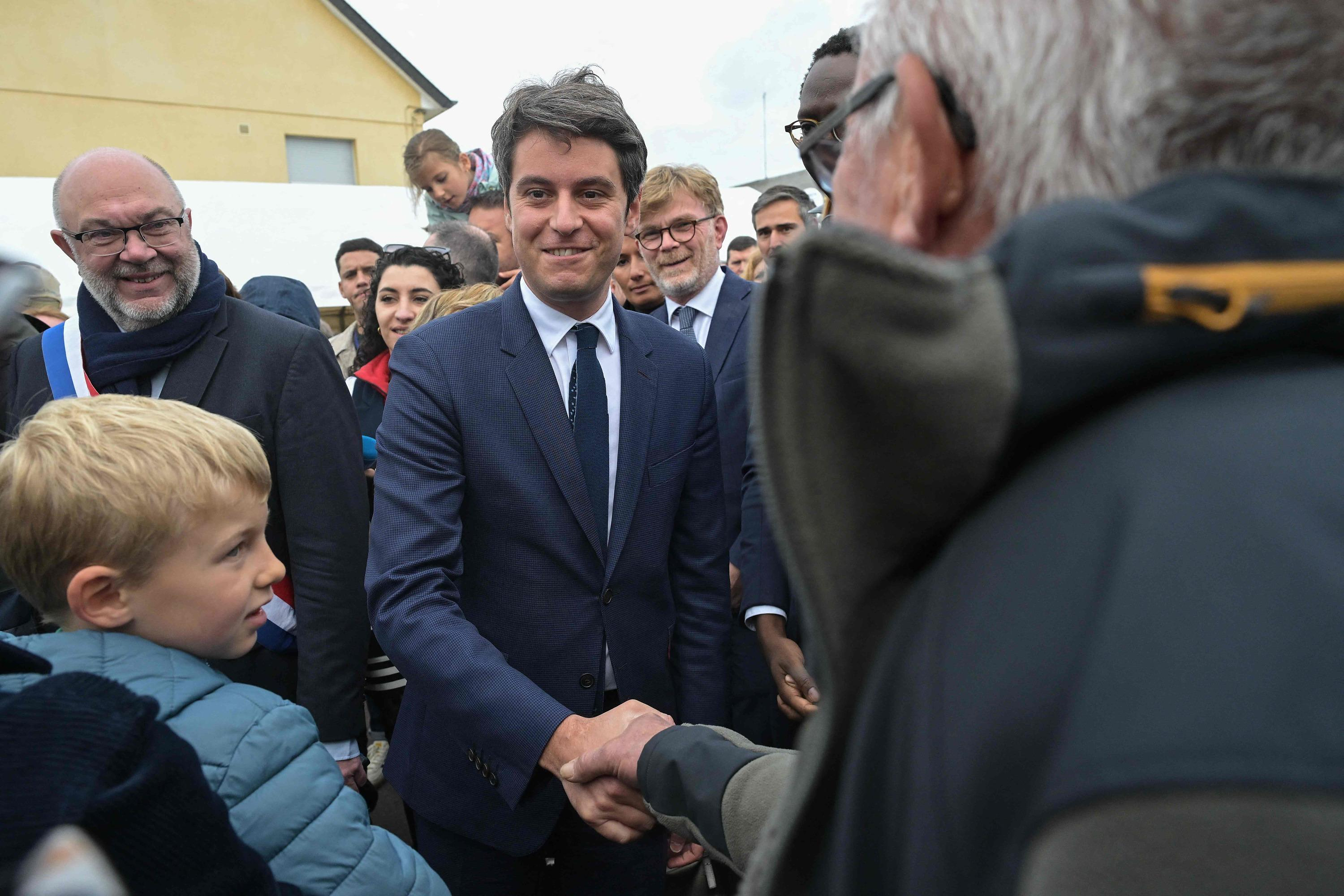Anyone who recently spoke to officials from the EU Commission, members of parliament and diplomats from other countries in Brussels heard one thing above all: they were annoyed by Germany.
It caused great resentment that the federal government - specifically: Transport Minister Volker Wissing from the FDP - blocked a long-agreed end for cars with combustion engines. Many in the European institutions believed that Berlin would never get away with it. You were wrong.
In autumn, the EU governments decided to only allow new cars that do not emit carbon dioxide from 2035. But at the beginning of March, Germany suddenly reported concerns.
Wissing demanded that combustion engines that fill up with e-fuels should remain allowed. In other words, fuels that are generated with green electricity but cause exhaust gases while driving. Without such a regulation, Wissing threatened, Germany could not agree to the deal after all.
For a long time, the EU Commission did not seem to be taking the demand seriously. Apparently she tried to brush off the German minister.
When asked by WELT, the office of the responsible Commissioner Frans Timmermans said: There had been two attempts to organize a meeting with Wissing on the subject, but it had to be canceled because Mr Timmermans had been traveling both times. Doesn't sound as if the Brussels authorities had an increased interest in talks with Wissing.
On Saturday, Wissing and Timmermans announced that they had reached an agreement. The way is clear for vehicles with combustion engines that only use e-fuels to be re-registered after 2035.
According to Wissing, specific procedural steps were agreed. There should also be a schedule. "We want the process to be completed by autumn 2024," said Wissing. So in the end he prevailed against Timmermans.
The dispute between the Ministry of Transport and the European Commission was about a small but important detail. Wissing pushed through a passage during the negotiations last year, according to which the Brussels authorities should present a proposal on how the so-called "green combustion engines" can also be approved later than 2035.
However, this passage was not legally binding. And the EU Commission only wanted to publish it after the law had been adopted. Wissing had initially agreed to this, but later surprisingly demanded an agreement on e-fuels before the rules were passed. Now he gets his way.
You can see that as a victory for the federal government. After all, the dispute was about the well-being of an industry on which hundreds of thousands of jobs depend in Germany and a lot of emotions.
But the late triumph comes at a high price. Berlin is likely to have lost a lot of trust in Europe with its back and forth.
At least an agreement has been found. The Greens in the Bundestag welcome this. “It is good that the back and forth has come to an end and that Germany will finally agree to the Europe-wide end of fossil fuel combustion. There must be no doubts about Germany's reliability in the EU. Now the automotive industry also has planning security, ”said Green Party leader Katharina Dröge WELT AM SONNTAG.
The situation in Brussels is different. Scholz and Wissing had some allies at the EU summit, mainly Italy, Bulgaria and Poland. After the German turnaround, they too fought for the survival of the combustion engine.
But most of the rest criticized the federal government. Many European leaders spoke of a dangerous precedent. What, they asked, if other states follow Germany's example in the future and block decisions that have been made for a long time at the last minute? Then the EU could no longer function.
Latvia's Prime Minister Krišjānis Kariņš spoke of a "very, very difficult sign for the future". It is surprising that a government suddenly decides differently after an agreement has already been reached.
Luxembourg's Prime Minister Xavier Bettel grumbled at the summit: "It's not a request concert if we come to Brussels." Belgian Prime Minister Alexander De Croo said that a government should not change course so abruptly. Finland and the Netherlands made similar statements.
Everyone seemed to agree in Brussels: It's too late to save the "green" combustion engines, Germany missed the moment. But that turned out to be a mistake.
"Everything on shares" is the daily stock exchange shot from the WELT business editorial team. Every morning from 5 a.m. with the financial journalists from WELT. For stock market experts and beginners. Subscribe to the podcast on Spotify, Apple Podcast, Amazon Music and Deezer. Or directly via RSS feed.

 B:SM will break its investment record this year with 62 million euros
B:SM will break its investment record this year with 62 million euros War in Ukraine: when kyiv attacks Russia with inflatable balloons loaded with explosives
War in Ukraine: when kyiv attacks Russia with inflatable balloons loaded with explosives United States: divided on the question of presidential immunity, the Supreme Court offers respite to Trump
United States: divided on the question of presidential immunity, the Supreme Court offers respite to Trump Maurizio Molinari: “the Scurati affair, a European injury”
Maurizio Molinari: “the Scurati affair, a European injury” First three cases of “native” cholera confirmed in Mayotte
First three cases of “native” cholera confirmed in Mayotte Meningitis: compulsory vaccination for babies will be extended in 2025
Meningitis: compulsory vaccination for babies will be extended in 2025 Spain is the country in the European Union with the most overqualified workers for their jobs
Spain is the country in the European Union with the most overqualified workers for their jobs Parvovirus alert, the “fifth disease” of children which has already caused the death of five babies in 2024
Parvovirus alert, the “fifth disease” of children which has already caused the death of five babies in 2024 The A13 motorway will not reopen on May 1
The A13 motorway will not reopen on May 1 More than 1,500 items for less than 1 euro: the Dutch discounter Action opens a third store in Paris
More than 1,500 items for less than 1 euro: the Dutch discounter Action opens a third store in Paris 100 million euros in loans, water storage, Ecophyto plan… New measures from the executive towards farmers
100 million euros in loans, water storage, Ecophyto plan… New measures from the executive towards farmers “He is greatly responsible”: Philippe Martinez accuses Emmanuel Macron of having raised the RN
“He is greatly responsible”: Philippe Martinez accuses Emmanuel Macron of having raised the RN Les Galons de la BD dedicates War Photographers, a virtuoso album on the Spanish War
Les Galons de la BD dedicates War Photographers, a virtuoso album on the Spanish War Theater: Kevin, or the example of an academic failure
Theater: Kevin, or the example of an academic failure The eye of the INA: Jean Carmet, the thirst for life of a great actor
The eye of the INA: Jean Carmet, the thirst for life of a great actor The Nuc plus ultra: St Vincent the Texane and Neil Young the return
The Nuc plus ultra: St Vincent the Texane and Neil Young the return Skoda Kodiaq 2024: a 'beast' plug-in hybrid SUV
Skoda Kodiaq 2024: a 'beast' plug-in hybrid SUV Tesla launches a new Model Y with 600 km of autonomy at a "more accessible price"
Tesla launches a new Model Y with 600 km of autonomy at a "more accessible price" The 10 best-selling cars in March 2024 in Spain: sales fall due to Easter
The 10 best-selling cars in March 2024 in Spain: sales fall due to Easter A private jet company buys more than 100 flying cars
A private jet company buys more than 100 flying cars This is how housing prices have changed in Spain in the last decade
This is how housing prices have changed in Spain in the last decade The home mortgage firm drops 10% in January and interest soars to 3.46%
The home mortgage firm drops 10% in January and interest soars to 3.46% The jewel of the Rocío de Nagüeles urbanization: a dream villa in Marbella
The jewel of the Rocío de Nagüeles urbanization: a dream villa in Marbella Rental prices grow by 7.3% in February: where does it go up and where does it go down?
Rental prices grow by 7.3% in February: where does it go up and where does it go down? Even on a mission for NATO, the Charles-de-Gaulle remains under French control, Lecornu responds to Mélenchon
Even on a mission for NATO, the Charles-de-Gaulle remains under French control, Lecornu responds to Mélenchon “Deadly Europe”, “economic decline”, immigration… What to remember from Emmanuel Macron’s speech at the Sorbonne
“Deadly Europe”, “economic decline”, immigration… What to remember from Emmanuel Macron’s speech at the Sorbonne Sale of Biogaran: The Republicans write to Emmanuel Macron
Sale of Biogaran: The Republicans write to Emmanuel Macron Europeans: “All those who claim that we don’t need Europe are liars”, criticizes Bayrou
Europeans: “All those who claim that we don’t need Europe are liars”, criticizes Bayrou These French cities that will boycott the World Cup in Qatar
These French cities that will boycott the World Cup in Qatar Paris 2024 Olympic Games: “It’s up to us to continue to honor what the Games are,” announces Estanguet
Paris 2024 Olympic Games: “It’s up to us to continue to honor what the Games are,” announces Estanguet MotoGP: Marc Marquez takes pole position in Spain
MotoGP: Marc Marquez takes pole position in Spain Ligue 1: Brest wants to play the European Cup at the Stade Francis-Le Blé
Ligue 1: Brest wants to play the European Cup at the Stade Francis-Le Blé Tennis: Tsitsipas released as soon as he entered the competition in Madrid
Tennis: Tsitsipas released as soon as he entered the competition in Madrid


















